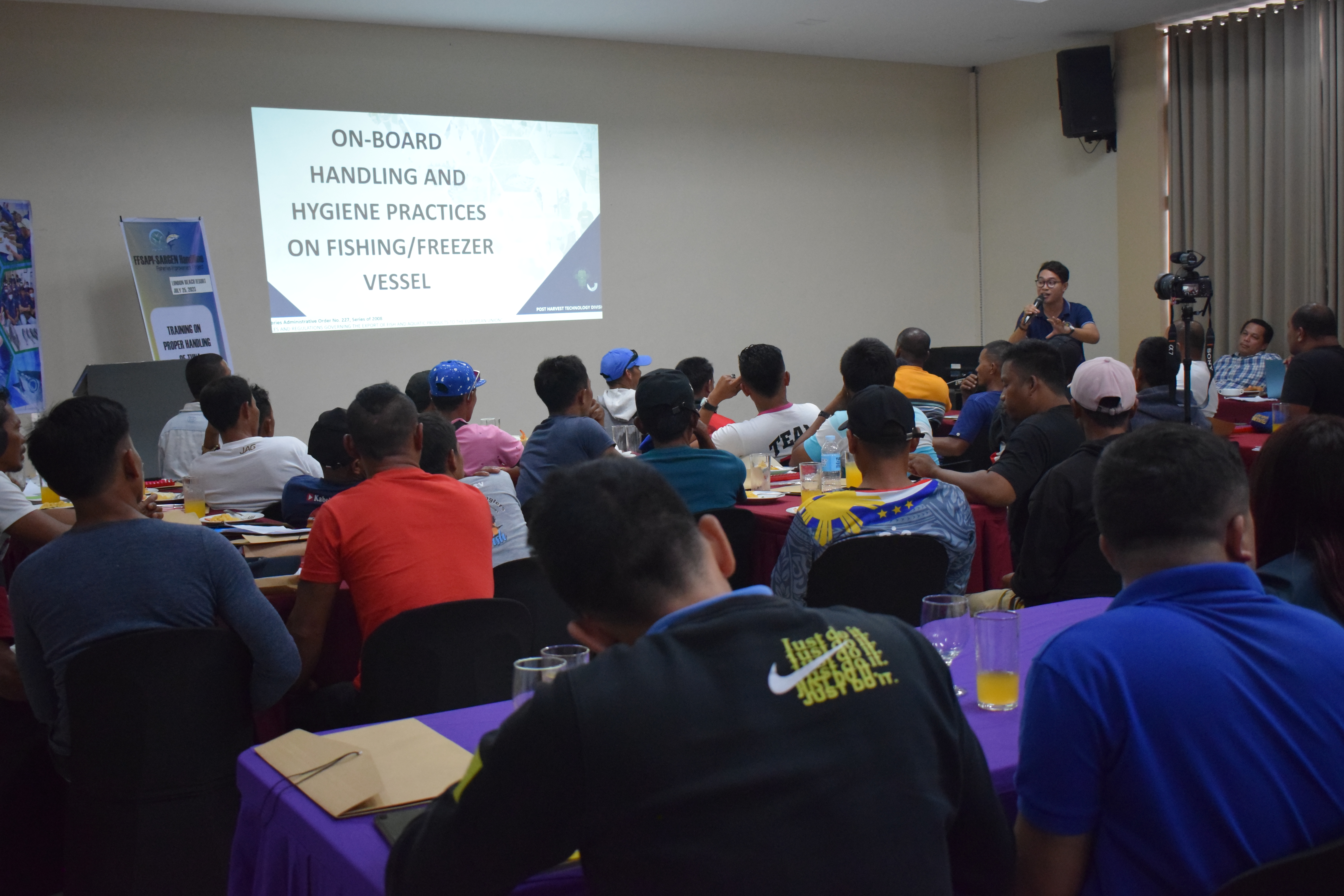Participating Fishermen were reminded Tuna is a valuable commodity in the global seafood market, and the industry supports numerous jobs and livelihoods around the world. Proper handling practices help maintain the value of the catch, support livelihoods, and contribute to the economic sustainability of fishing communities and that their work in managing the deck and storage spaces of the vessel before fishing, during fishing, and after unloading is very crucial in the maintaining the quality of the product coming from their vessel and that everything they do on the deck of the boat, from cleaning to the storage of chemicals, bait, and product, has the potential to affect the quality of the catch.
The training aims to capacitate the fishermen and help them understand their responsibility and how essential their role is in terms of protecting consumers and ensuring the integrity of the seafood supply chain. BFAR is confident that by equipping fishers with the necessary knowledge and skills and by adhering to best practices throughout the tuna supply chain, fishermen can contribute to a more sustainable and responsible seafood industry.



